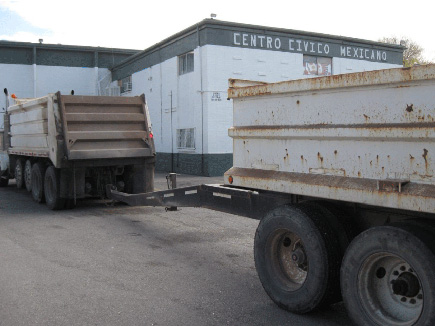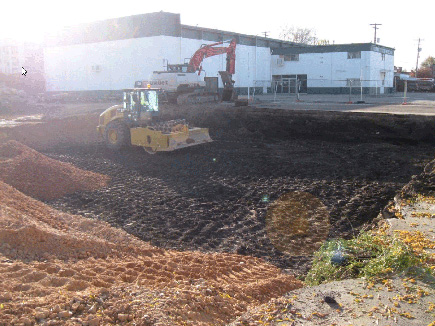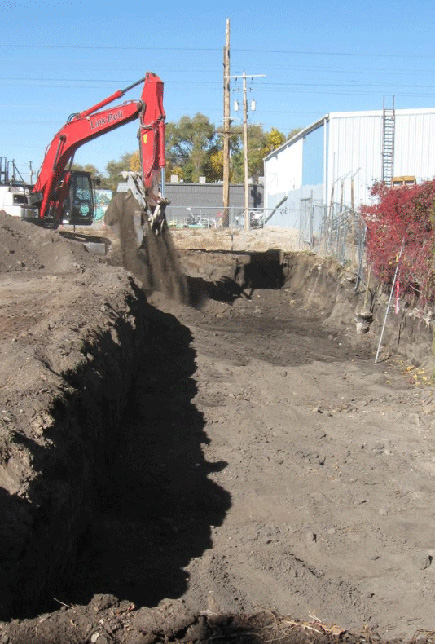
Centro Civico Mexicano (Centro) is located in the heart of Salt Lake City’s Depot District near the Gateway Shopping Mall. Centro, Utah’s oldest non-profit Hispanic organization, has been a fixture in the Hispanic Community since the 1950s. Prior to recent redevelopment efforts, Centro’s property in downtown Salt Lake City consisted of a community center and an adjacent undeveloped lot.
To further its commitment to the community, Centro envisioned affordable housing on the undeveloped lot to accommodate individuals with lower incomes. However, during a preliminary environmental assessment, the developer discovered polycyclic aromatic hydrocarbons in the soil. The plot had a long history of commercial and industrial activities, and the contamination became an impediment to the planned redevelopment efforts.

Industrial or commercial sites where future use is affected by actual or perceived environmental contamination are called Brownfields. Uncertainties about environmental contamination can discourage reinvestment in and redevelopment of the property.
To address this issue, Centro’s board approached the Division of Environmental Response and Remediation (DERR) to help move the project forward.
DERR’s engineers helped Centro apply for Targeted Brownfield Assessment (TBA) through the Environmental Protection Agency (EPA). TBAs are a tool to investigate and sample properties for contamination at no expense to the applicant.
With the extent of contamination understood, Centro was able to look at various cleanup options for their property. They applied for a Brownfields Cleanup Grant through the EPA and were able to successfully secure $200,000 in funding.

Next, Centro’s project became a part of DEQ’s Voluntary Cleanup Program (VCP).DERR then connected the organization with a low interest loan from the Wasatch Front Brownfield Coalition (WFBC) revolving fund, which offers various financing products to eligible groups looking to redevelop qualified Brownfield sites.
Under the VCP, DERR oversaw the removal of approximately 4,000 yards of contaminated soil, and, upon completion of an environmental covenant and a site management plan, issued a Certificate of Completion (COC) in 2018. The COC helped remove the impediment caused by the contamination and construction of the apartment complex began shortly thereafter.
Today, the Casa Milagros apartment complex on the west side of Salt Lake City is open for people aged 62 and up. Eighty percent of the units are for low income individuals and the apartments are two blocks from the city’s Intermodal Hub (a previous VCP site), which provides light rail and bus service throughout the valley. The housing is the first part of a larger project being undertaken by Centro.
